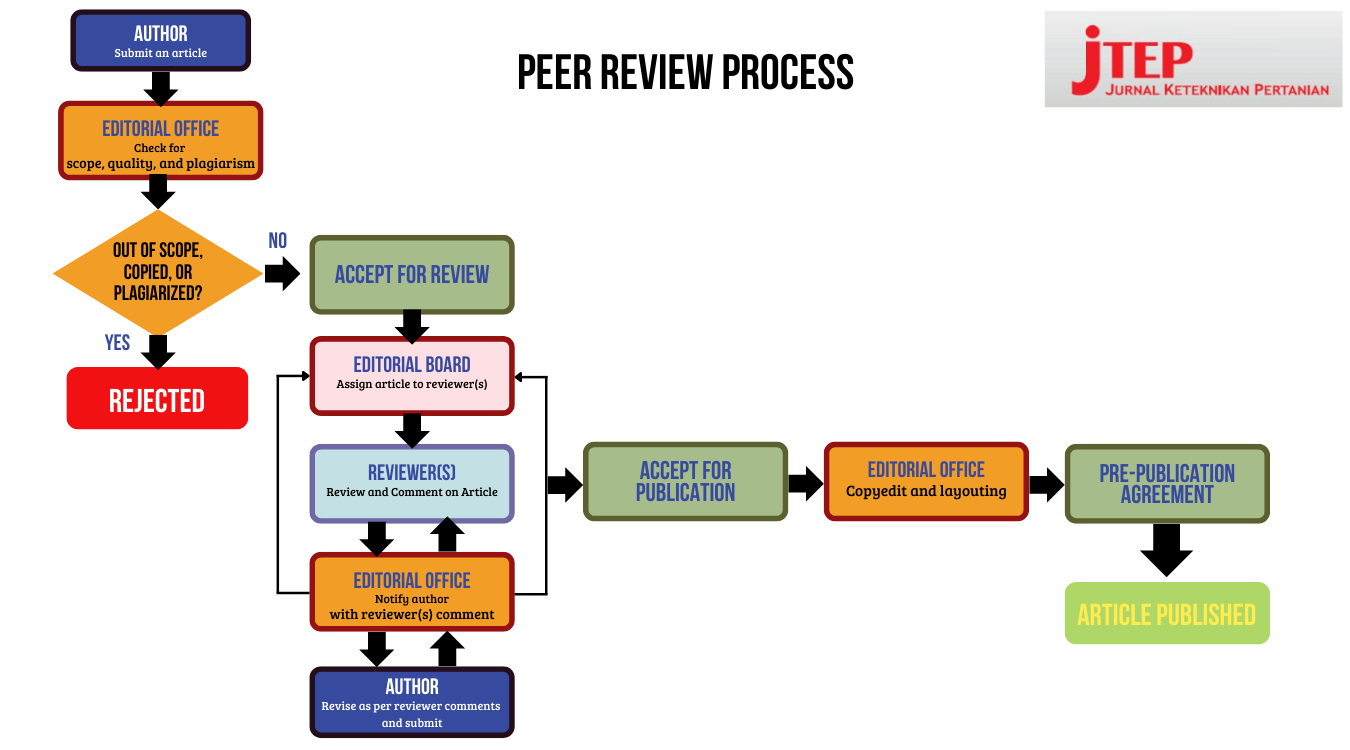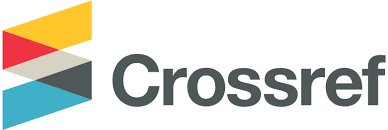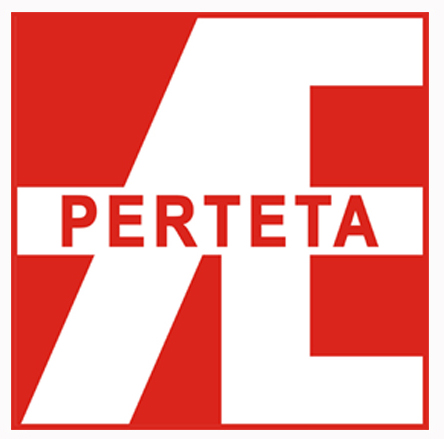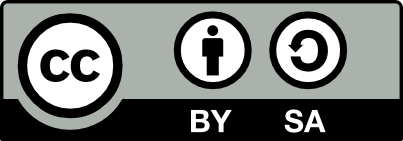Peer Review Process

The suitability of manuscripts for publication in Jurnal Keteknikan Pertanian is judged by peer reviewers and editorial board. All the review process are conducted in double-blind review. Chief Editor handles all correspondence with the author and makes the final decision as to whether the paper is recommended for acceptance, rejection, or needs to be returned to the author for revision.
Chief Editor and Section Editors will evaluate the submitted papers on prequalification step for the suitability of further review process. The manuscripts will be evaluated by two or three qualified peer reviewers selected by Chief Editor and Section Editors. The peer reviewers should examine the manuscript and return it with their recommendation to the Chief Editor or Section Editors as soon as possible, usually within 3 weeks. If one of peer reviewers recommends rejection, the Chief Editor will ask a third reviewer or Section Editors to decide the acceptance or rejection of the paper.
Papers needing revision will be returned to the authors, and the authors must return the revised manuscript to the Chief Editor via OJS of Jurnal Keteknikan Pertanian. Chief Editor sends the revised manuscript to Section Editors to check whether the manuscript is revised as suggested by peer reviewers. Sections Editors could give recommendation to Chief Editor that the manuscript should return to authors, accept, or reject within 2 weeks. After acceptance letter sent by Chief Editor, the manuscript is forwarded to the technical editor for editing and layout process. Chief Editor would send a letter announcing the publication issue and invoice attached with PROOF to authors.
There are four steps of revision process by authors: 1) revision manuscript to accommodate Section Editors suggestions (prequalification step) within 2 weeks; 2) revision manuscript to accommodate peer reviewer suggestions within 2-4 weeks; 3) revision to accommodate Section Editors suggestions within 2-4 weeks (if any); and 4) revision to accommodate editorial meeting suggestions within 1 week (if any). Manuscripts that exceed the revision deadline will be withdrawn. Authors may request for extension to Chief Editor before the revision expires. The time interval from the date the manuscript is submitted to the acceptance for publication varies, depending on the time required for review and revision process.
Manuscripts are rejected usually for 3 general reasons: 1) The topic of manuscript does not fit in the journal scope and may be better suited for publication elsewhere. 2) The substance of the manuscripts does not meet Jurnal Keteknikan Pertanian standards; the data may be incomplete; the methodology used is not appropriate; lack of novelties and no advancement of the existing knowledge; or there are no consistency among objectives, research design/method, evidence, and conclusion. 3) The manuscript is not written following Jurnal Keteknikan Pertanian guidelines in Instruction to Authors. These manuscripts may be rejected without review process. Manuscripts could also be rejected in the review process if Authors do not revise the manuscripts as suggested by reviewers and editorial board, also do not give response/rebuttal against the suggestions.
If manuscript is rejected, the author will be notified by Chief Editor with a statement of reasons for rejection. The author may appeal to Chief Editor if he or she believes an unfair judgement has been made which encloses the author’s reasons. Chief Editor will review and discuss the reasons with Section Editors responsible for the manuscript, and later decide whether to accept or deny the appeal. The author(s) will receive the final version of the manuscript as a PDF file. PROOF of all manuscripts will be provided to the corresponding author. The PROOF should be read carefully, checked against the typed manuscript, and the corrections may be returned within 7 days.
Authors submitting manuscripts should understand and agree that copyright of manuscripts of the article shall be assigned/transferred to Jurnal Keteknikan Pertanian. This work is licensed under a Creative Commons Attribution-ShareAlike 4.0 International License (CC BY-SA) where Authors and Readers can copy and redistribute the material in any medium or format, as well as remix, transform, and build upon the material for any purpose, but they must give appropriate credit (cite to the article or content), provide a link to the license, and indicate if changes were made. If you remix, transform, or build upon the material, you must distribute your contributions under the same license as the original.





















